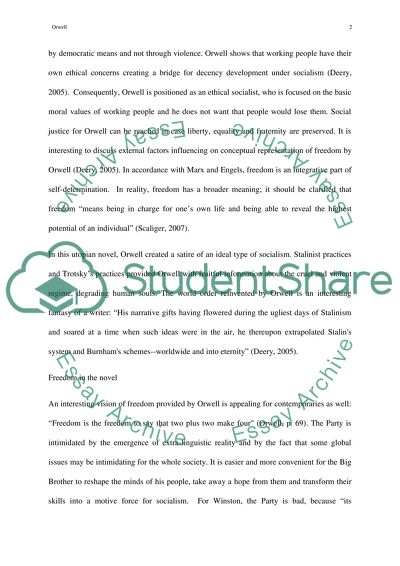Cite this document
(“Freedom and Human Rights in Orwells 1984 Essay Example | Topics and Well Written Essays - 1750 words”, n.d.)
Retrieved from https://studentshare.org/english/1430138-freedom-and-human-rights-in-orwells-1984
Retrieved from https://studentshare.org/english/1430138-freedom-and-human-rights-in-orwells-1984
(Freedom and Human Rights in Orwells 1984 Essay Example | Topics and Well Written Essays - 1750 Words)
https://studentshare.org/english/1430138-freedom-and-human-rights-in-orwells-1984.
https://studentshare.org/english/1430138-freedom-and-human-rights-in-orwells-1984.
“Freedom and Human Rights in Orwells 1984 Essay Example | Topics and Well Written Essays - 1750 Words”, n.d. https://studentshare.org/english/1430138-freedom-and-human-rights-in-orwells-1984.


